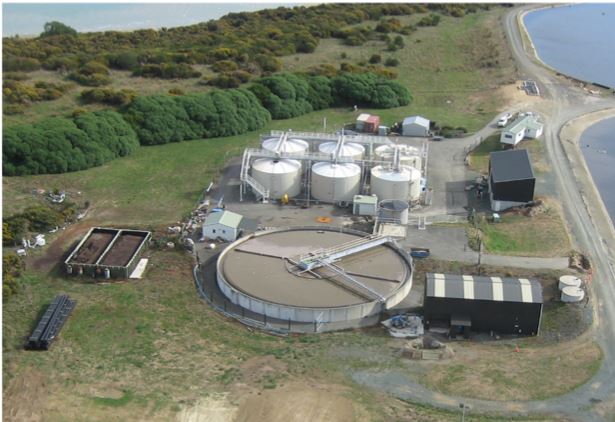Wastewater treatment plant set to go solar


Construction of a large-scale solar facility on Bell Island could start by 2025. Photo: Supplied.
The Bell Island wastewater treatment plant could soon be powered by solar - and it could also help power the region.
The Nelson Regional Sewerage Business Unit (NRSBU) is investigating the feasibility of a large-scale solar facility on Bell Island, beside the plant.
This would reduce the plant's energy costs and potentially provide energy to the wider Nelson Tasman region.
Depending on the outcomes of the feasibility investigation, construction is expected to start in 2025.
The NRSBU sought expressions of interest in 2021 for the installation of a solar power system on Bell Island to supply power directly to the wastewater treatment plant as part of a plan to reduce carbon emissions and improve the plant’s resilience.
The successful bid came from New Zealand-based renewable energy firm Infratec New Zealand.
Chairperson of the NRSBU, Tasman councillor Kit Maling, says the region needs to look at ways to make sure our core infrastructure has a secure power supply, especially with many communities in the North Island losing power during Cyclone Gabrielle.
“With a solar facility on Bell Island, we can help reduce greenhouse gases associated with the electricity that the plant uses. Also, if we can go ahead, the cost savings will be significant over the expected life of the treatment plant.”
The agreement with Infratec provides for the construction of a plant capable of producing approximately 15 megawatts of electricity.
Deputy chair of the NRSBU, Nelson councillor Tim Skinner, says while it’s still “early days” this could be a “clean and sustainable option for power for households in our region”.
“One of the factors we liked about Infratec’s proposal is that the facility's capacity is likely to be more than 10 times the consumption of the treatment plant, meaning the asset will actually provide a significant power supply for the wider Nelson Tasman region.”
The NRSBU will also benefit from Green Credits for the electricity used from the plant.
Infratec CEO, Grant Smith, says it will allow for increased energy resilience and security, as well as a financial benefit to the local ratepayers.
“It’s great to see NRSBU leading the initiative to develop infrastructure that is well suited to solar power, ensuring our communities can benefit from New Zealand’s decarbonisation opportunities while improving local energy supply and resilience.”
The agreement does not require any capital expenditure on behalf of the region’s ratepayers.
